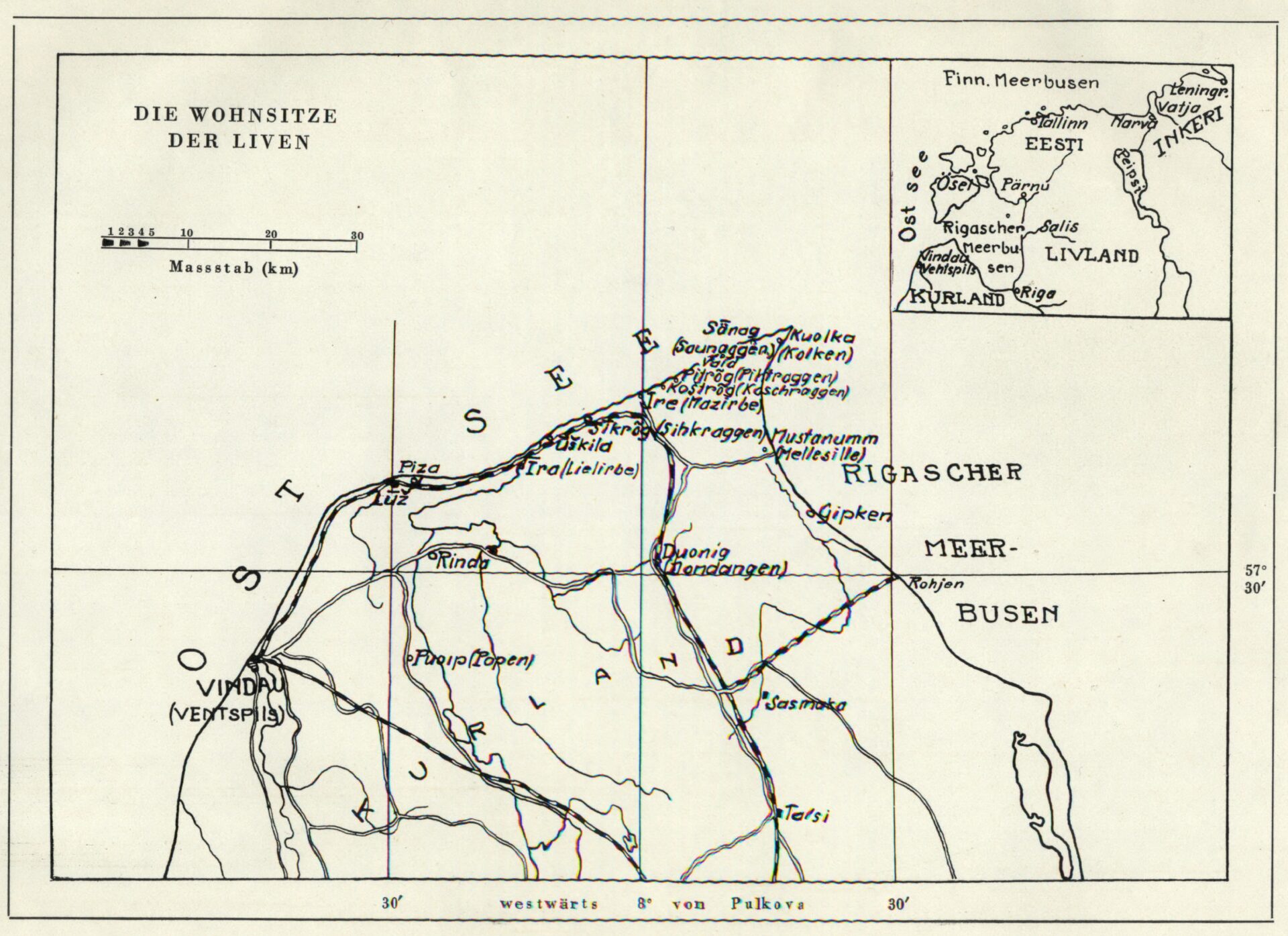
Livonian
4.2. Gramatik / Grammar
The grammar section in this unit is divided into four pages. First, there is an overview of the dative case (page 1), then the partitive case (page 2), local cases, local adverbs, and postpositions (page 3), and finally comparative and superlative forms of adjectives (page 4),
Dative
In Livonian, the dative is used for
- recipients, e.g., Ānda kēra tidārõn ’Give the letter to the daughter’
- possessors, e.g., Mi’nnõn vȯ’ļ rǭntõz ’I had a book’
- experiencers, e.g., Näntõn u’m kīlma ’They are chilly’
- rarely also losers, e.g., Vȯ’ļ ne’i ku alz mingi tǭ’ks nänt tä’mmõn jarā võttõ ’It was as if someone wanted to take them away from him’.
The dative is also used to mark part-whole relationships, e.g., Rǭntõn ātõ pu’nnizt kǭndõd ’The book has red covers’, and to show belonging, e.g., Se mǭ u’m mä’ddõn ’This land is ours’.
The dative also occurs in modal constructions showing obligation and identify who is responsible for the obligation, e.g.,Lapstõn u’m oppõmõst ’Children have to study’.
The dative ending is -n or -õn in the singular, the choice of which depends on the stem’s final sound, e.g., tidār : tidārõn ’daughter (nom, gen) : daughter (dat)’, sõbrā : sõbrān ’friend (nom, gen) : friend (dat)’. Generally, the base form of the dative is the genitive. When forming the plural dative, the dative ending is added to the plural genitive form, which usually is the same as the plural nominative form, e.g., suodād : suodādõn ’wars (nom, gen) : wars (dat)’, lapst : lapstõn ’children (nom, gen) : children (dat)’, pu’nnizt : pu’nniztõn ’red (pl nom, pl gen) : red (pl dat)’. -ddõn is the plural ending for personal pronouns mēg : mä’ddõn ’we (nom) : we (dat)’ ja tēg : tä’ddõn ’you (pl nom) : you (pl dat)’.
It should be noted that when the when the head word is in the dative, its complements are in the genitive, e.g., piškīz pi’nnõn ’little dog (dat)’.
Good to know. In addition to the long forms, the 1st and 2nd person pronouns also have sentence-stressed short forms that are the same as the genitive forms. cf. mi’nnõn ~ mi’n, si’nnõn ~ si’n, mä’ddõn ~ mä’n, tä’ddõn ~ tä’n. Short forms, however, occur rarely.


